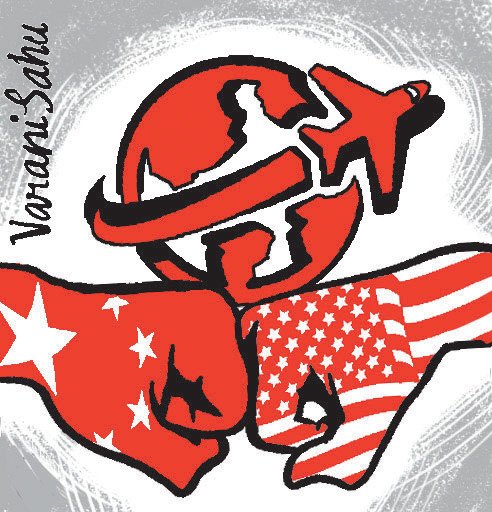The trade war that President Donald Trump has been threatening has finally started, with US tariffs of 25% on $34 billion worth of imports from China and retaliatory tariffs in China on imports worth the same amount from the US having kicked in on Friday. President Trump has threatened to retaliate against the Chinese retaliation. China has promised to return the favour. In other words, the US and China are likely to impose penal tariffs on their entire imports from each other. The rest of the world would suffer collateral damage, even if the US were to refrain from penalising imports from other countries.
There could be three different types of damage. One, if Chinese steel cannot find its way into the US, it could be dumped on other markets, triggering protective tariffs. The collateral damage such trade diversion can create could be extensive. Two, global growth could be hurt. Modern manufacturing runs on supply chains, in which the same product could cross multiple borders multiple times, to add value every time, before being incorporated into a final good for export. A trade war could disrupt these flows and even shift the location of the final manufacture, to avoid penal tariffs in the export destination. And, three, the likelihood of lower global growth, triggered by a trade war and the prospect of supply disruptions, could cause share prices to tank, initiating a flight of capital from emerging markets to the safety of the home market, making currencies and interest rates move in wholly undesirable ways. There are unlikely to be any winners in a trade war.
So far, the Chinese goods the US has chosen to levy additional tariffs on are capital and intermediate goods, rather than consumer goods. However, if and when the war escalates, tariffs would go up on the daily necessities Americans have got used to buying cheap. If their prices go up, there could be a backlash. The Chinese are likely to take a more nationalistic view, as compared to Americans, of the suffering caused by a trade war. Whoever can take the pain better will not be the one to blink first. India should stand for a rules-based world order.
Hi! I am a robot. I just upvoted you! I found similar content that readers might be interested in:
https://blogs.economictimes.indiatimes.com/et-editorials/everyone-a-loser-in-trumps-trade-war-brace-for-trade-rupee-and-interest-rate-harm/